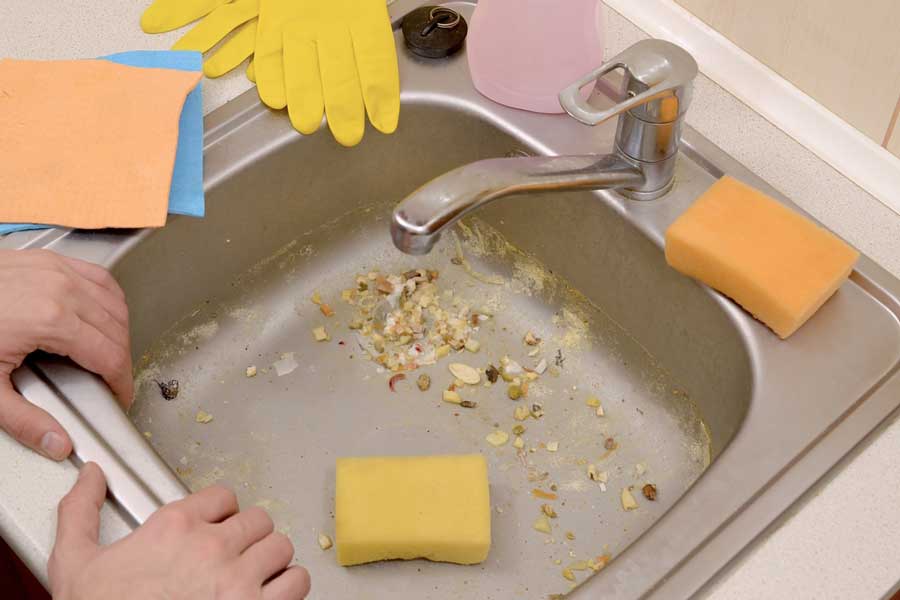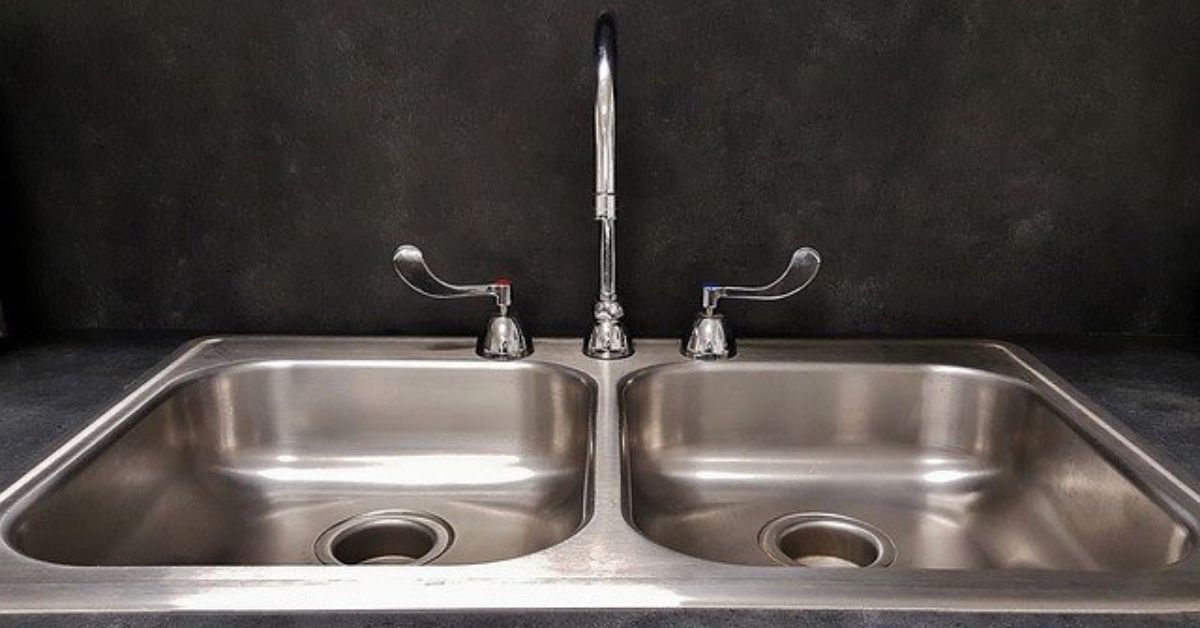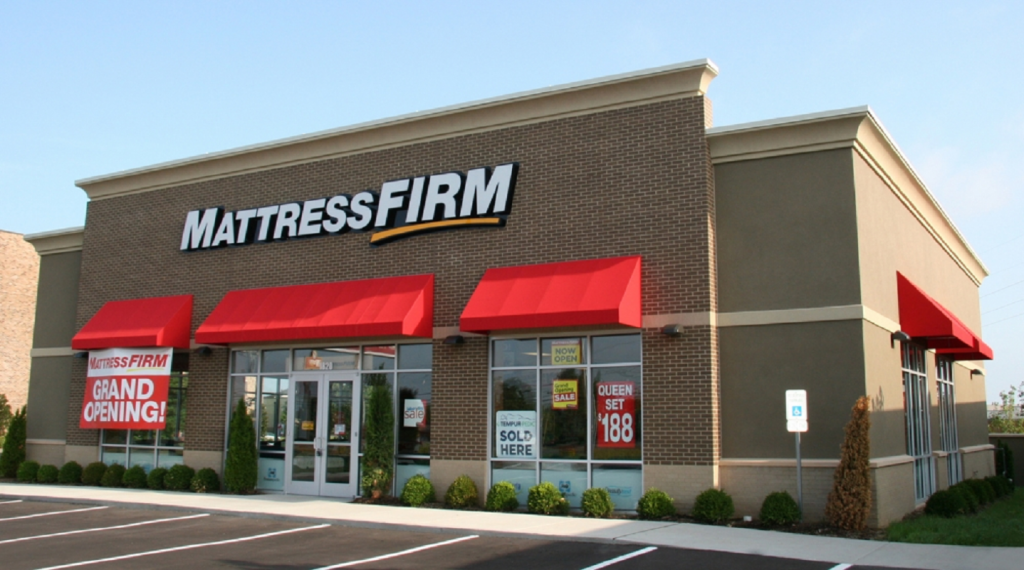Dealing with a slow-draining kitchen sink can be frustrating. Not only does it make washing dishes and food preparation more difficult, but it can also lead to unpleasant odors and potential clogs. Fortunately, there are several simple solutions to fix a slow-draining kitchen sink.How to Fix a Slow-Draining Kitchen Sink
One of the most common causes of a slow-draining kitchen sink is a clogged drain. This can be caused by a buildup of food particles, grease, or other debris. To unclog the drain, start by using a plunger to create suction and dislodge the blockage. If that doesn't work, try using a plumbing snake to break up and remove the clog.How to Unclog a Kitchen Sink Drain
While a clogged drain is a common culprit, there are other reasons why your kitchen sink may be draining slowly. These include a damaged or clogged P-trap, a faulty garbage disposal, a blocked vent, or a damaged main sewer line. Identifying the cause of the slow drain can help you determine the best solution.5 Common Causes of a Slow-Draining Kitchen Sink
Regularly cleaning your kitchen sink drain can help prevent buildup and clogs. To clean the drain, start by removing any visible debris. Then, pour a mixture of hot water, baking soda, and vinegar down the drain to break up any buildup. Let it sit for a few minutes before flushing the drain with hot water.How to Clean a Kitchen Sink Drain
A plunger can be a useful tool for unclogging a kitchen sink drain. To use a plunger, fill the sink with enough water to cover the suction cup. Place the plunger over the drain and push down firmly, then pull back up to create suction. Repeat this motion several times until the drain is unclogged.How to Use a Plunger on a Kitchen Sink
If a plunger isn't effective, using a plumbing snake may help to clear the clog. Insert the snake into the drain and twist it as you push it down. Once you reach the clog, continue to twist and push until the snake breaks up and removes the blockage. Flush the drain with hot water to ensure it is clear.How to Snake a Kitchen Sink Drain
Baking soda and vinegar can be a natural and effective way to unclog a kitchen sink drain. Start by pouring a cup of baking soda down the drain, followed by a cup of vinegar. Let it sit for a few minutes before flushing the drain with hot water. The chemical reaction between the two ingredients can help break up and remove clogs.How to Use Baking Soda and Vinegar to Unclog a Kitchen Sink
Prevention is key when it comes to avoiding a slow-draining kitchen sink. Some ways to prevent clogs and slow drains include regularly cleaning the drain, avoiding pouring grease and food scraps down the sink, and using a mesh drain cover to catch debris. Additionally, avoid flushing non-biodegradable items down the drain, as they can cause major clogs.How to Prevent a Slow-Draining Kitchen Sink
If your kitchen sink drain is damaged or beyond repair, it may be time to install a new one. Start by turning off the water supply and disconnecting the drain from the sink. Then, follow the manufacturer's instructions to install the new drain. If you're not comfortable with DIY plumbing, it's best to hire a professional to ensure the job is done correctly.How to Install a New Kitchen Sink Drain
If you've tried all of the above solutions and your kitchen sink is still draining slowly, there may be a more significant issue at play. In this case, it's best to troubleshoot the problem by checking the P-trap, garbage disposal, vent, and sewer line for any potential issues. If you're unable to identify the problem, it's best to call a plumber for assistance.How to Troubleshoot a Slow-Draining Kitchen Sink
Why Your Kitchen Island Sink May Be Draining Slowly
/how-to-install-a-sink-drain-2718789-hero-24e898006ed94c9593a2a268b57989a3.jpg)
The Importance of Kitchen Design
/how-to-install-a-sink-drain-2718789-hero-b5b99f72b5a24bb2ae8364e60539cece.jpg) When it comes to designing a house, the kitchen is often considered the heart of the home. It is where families gather to cook, eat, and spend quality time together. As such, it is important to carefully consider the design and functionality of your kitchen to ensure it meets the needs of your household. One common issue that homeowners may face is a slow-draining kitchen island sink. This can be quite frustrating and inconvenient, but luckily, there are several reasons why this may be happening and ways to address it.
When it comes to designing a house, the kitchen is often considered the heart of the home. It is where families gather to cook, eat, and spend quality time together. As such, it is important to carefully consider the design and functionality of your kitchen to ensure it meets the needs of your household. One common issue that homeowners may face is a slow-draining kitchen island sink. This can be quite frustrating and inconvenient, but luckily, there are several reasons why this may be happening and ways to address it.
The Role of the Kitchen Island Sink
 The kitchen island sink is a popular feature in modern homes. It offers additional counter space for food preparation and can also serve as a secondary clean-up area. However, since it is not connected to the main drainage system, it can be prone to drainage issues. This is especially true if the sink is not properly designed and installed.
One of the main causes of a slow-draining kitchen island sink is a poorly designed drainage system.
If the sink is not positioned correctly or if the pipes are not properly sized, it can lead to clogs and slow drainage. This is because water and debris are not able to flow freely through the pipes, resulting in blockages and backups.
The kitchen island sink is a popular feature in modern homes. It offers additional counter space for food preparation and can also serve as a secondary clean-up area. However, since it is not connected to the main drainage system, it can be prone to drainage issues. This is especially true if the sink is not properly designed and installed.
One of the main causes of a slow-draining kitchen island sink is a poorly designed drainage system.
If the sink is not positioned correctly or if the pipes are not properly sized, it can lead to clogs and slow drainage. This is because water and debris are not able to flow freely through the pipes, resulting in blockages and backups.
The Impact of Poor Maintenance
 Another reason for a slow-draining kitchen island sink is poor maintenance. Over time, food particles, grease, and other debris can build up in the pipes and cause blockages. This can lead to slow drainage and even foul odors emanating from the sink. Regular cleaning and maintenance of your kitchen sink, including the use of natural and eco-friendly drain cleaners, can help prevent these issues.
Another reason for a slow-draining kitchen island sink is poor maintenance. Over time, food particles, grease, and other debris can build up in the pipes and cause blockages. This can lead to slow drainage and even foul odors emanating from the sink. Regular cleaning and maintenance of your kitchen sink, including the use of natural and eco-friendly drain cleaners, can help prevent these issues.
Addressing the Issue
 If you are experiencing a slow-draining kitchen island sink, there are several steps you can take to address the issue. First, check the pipes and connections to ensure they are properly installed and not damaged. If you notice any leaks or clogs, it may be necessary to call a professional plumber to fix the issue. Additionally, regularly cleaning and maintaining your sink can help prevent future drainage issues.
In conclusion, a slow-draining kitchen island sink can be a frustrating problem, but it is not uncommon in modern homes. By understanding the importance of kitchen design and maintenance, and addressing any issues promptly, you can ensure that your kitchen sink functions properly and efficiently for years to come.
If you are experiencing a slow-draining kitchen island sink, there are several steps you can take to address the issue. First, check the pipes and connections to ensure they are properly installed and not damaged. If you notice any leaks or clogs, it may be necessary to call a professional plumber to fix the issue. Additionally, regularly cleaning and maintaining your sink can help prevent future drainage issues.
In conclusion, a slow-draining kitchen island sink can be a frustrating problem, but it is not uncommon in modern homes. By understanding the importance of kitchen design and maintenance, and addressing any issues promptly, you can ensure that your kitchen sink functions properly and efficiently for years to come.














:max_bytes(150000):strip_icc()/freshen-and-unclog-drain-with-baking-soda-1900466-22-bbf940b70afa4d5abef0c54da23b1d3f.jpg)






/plumber-unclogging-kitchen-sink-169270382-5797a9355f9b58461f27f024.jpg)







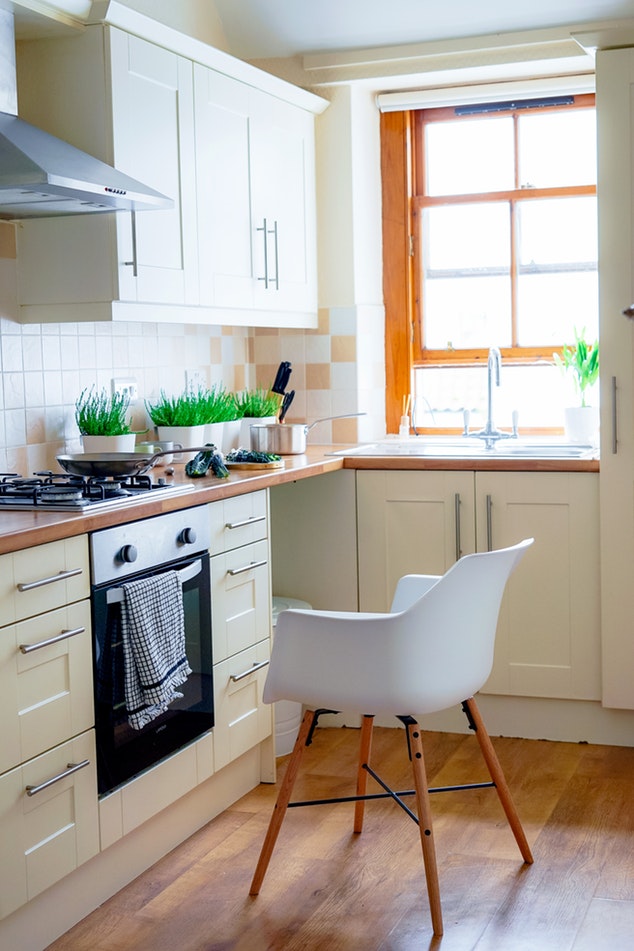


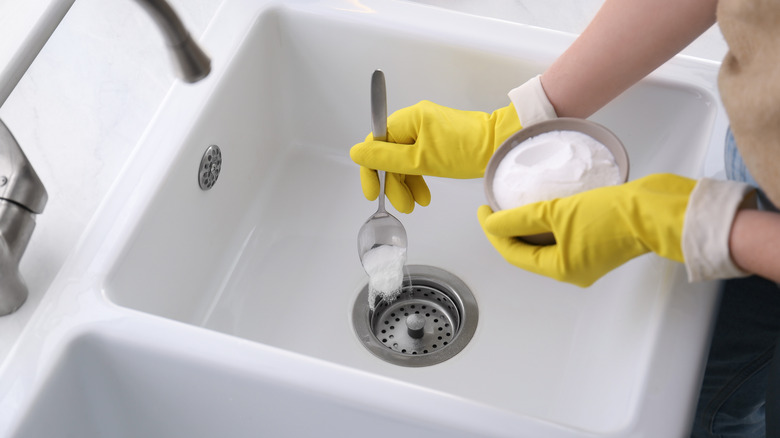


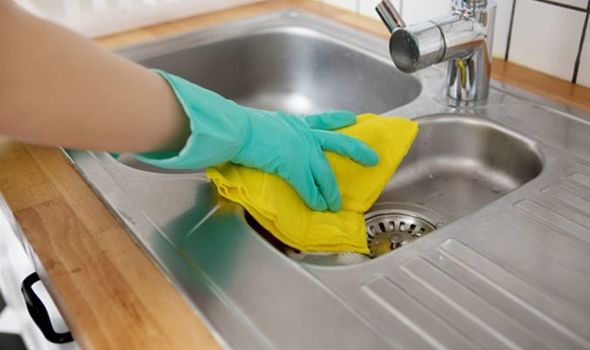
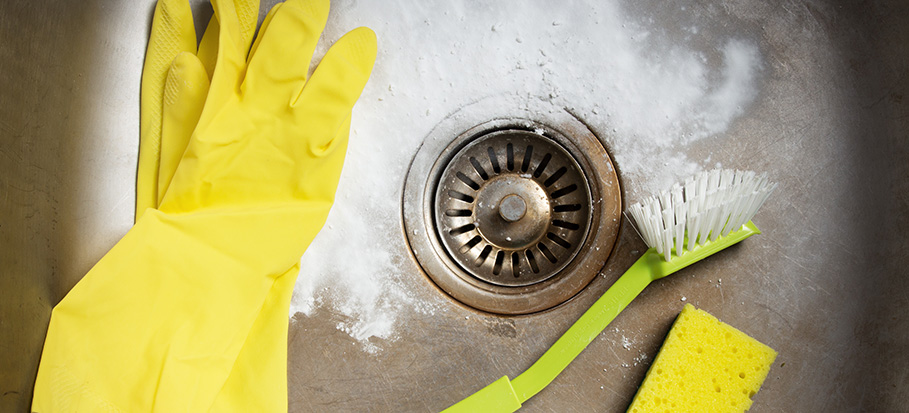

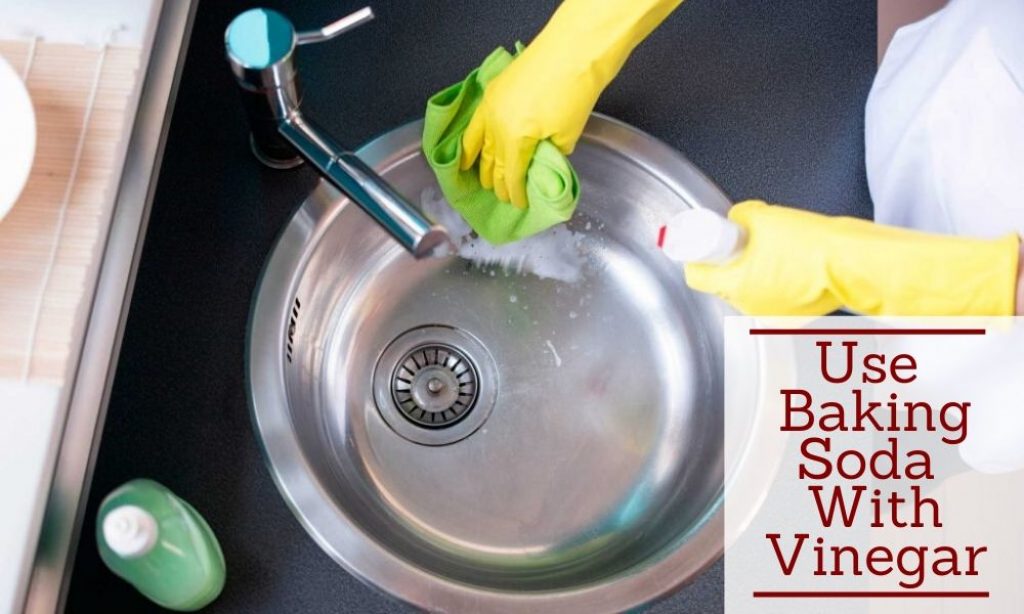



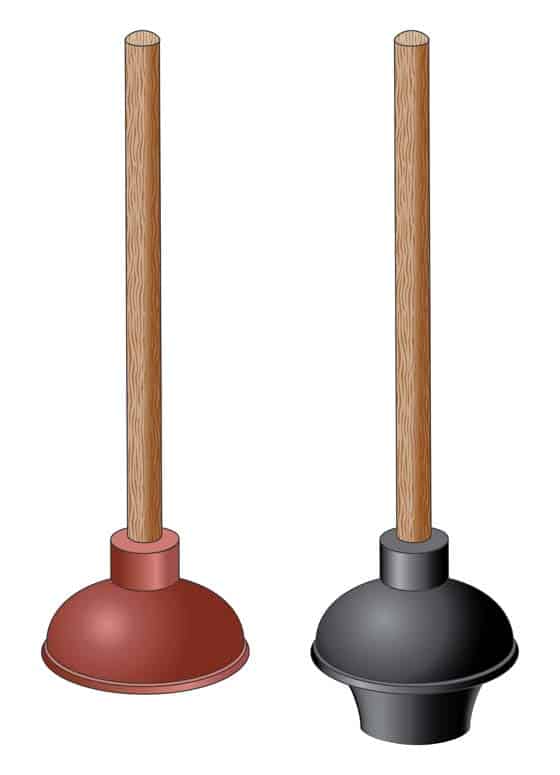
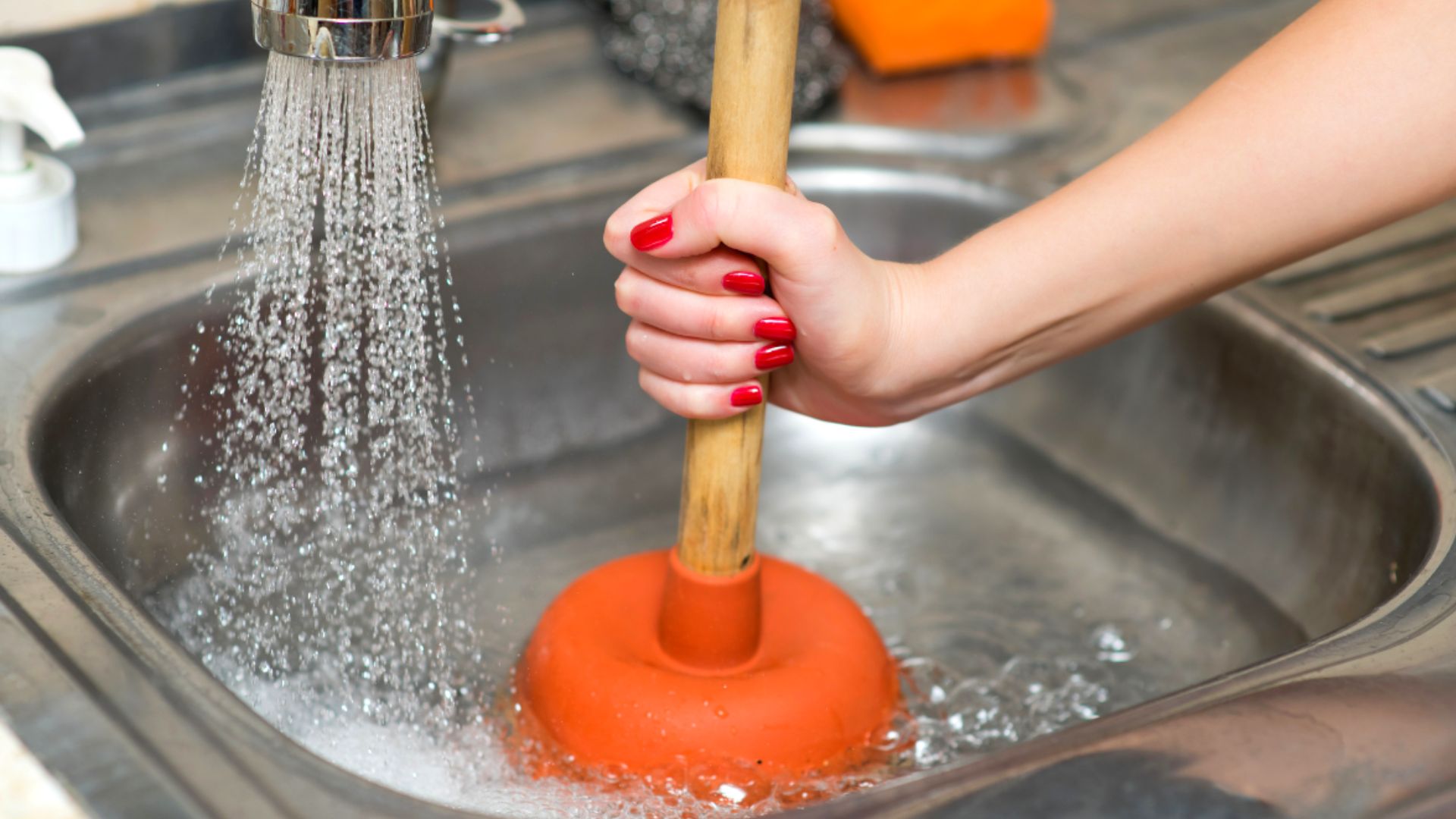

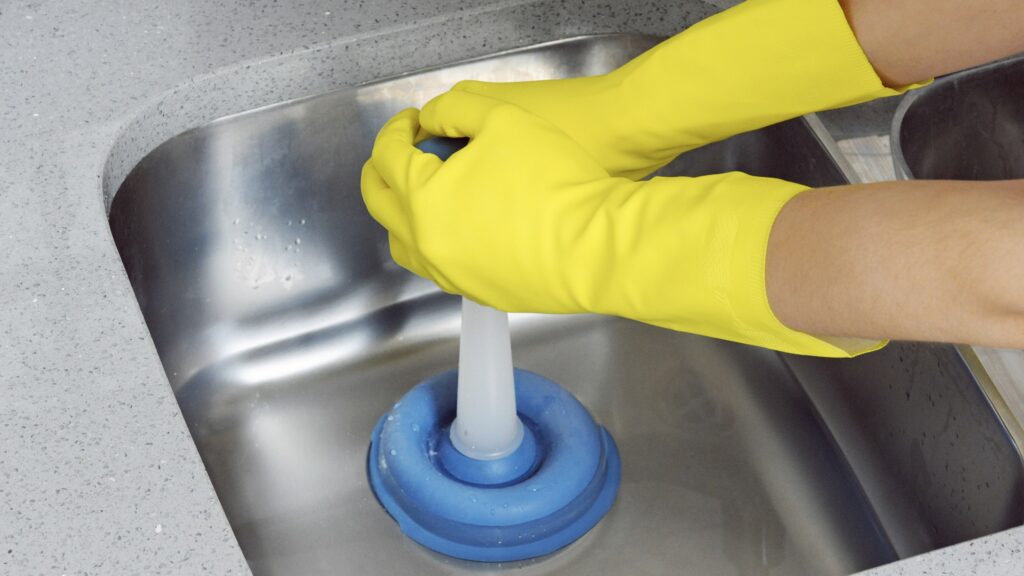
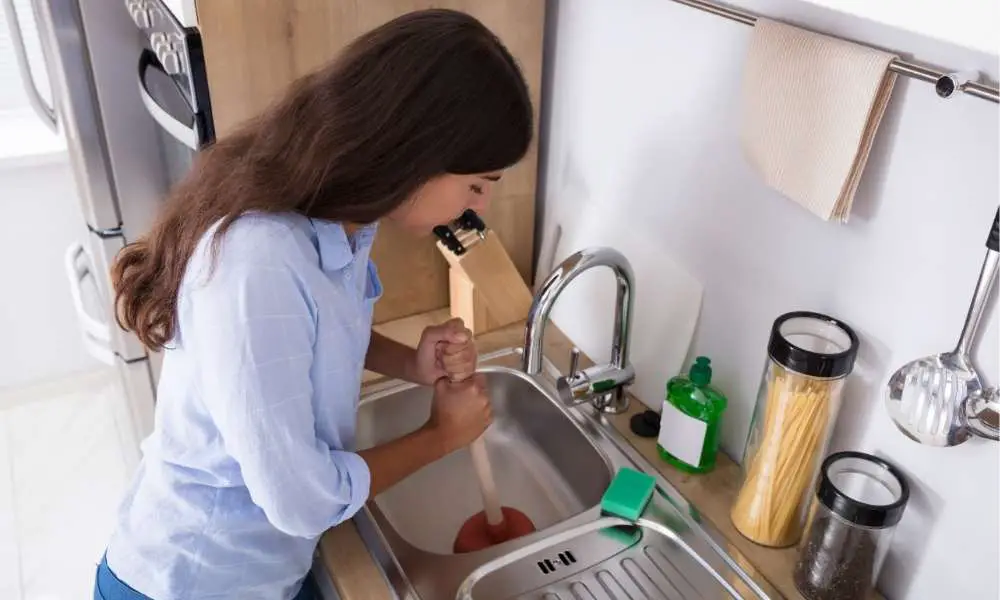
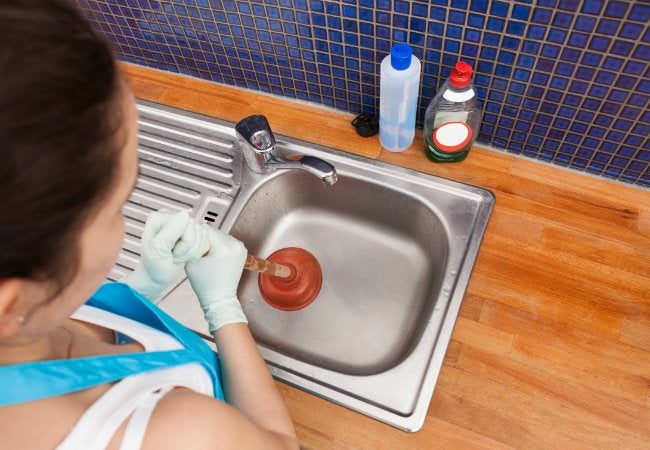
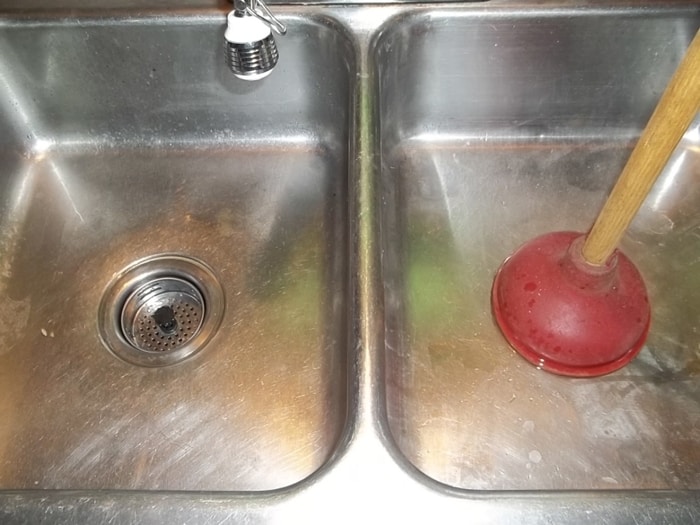


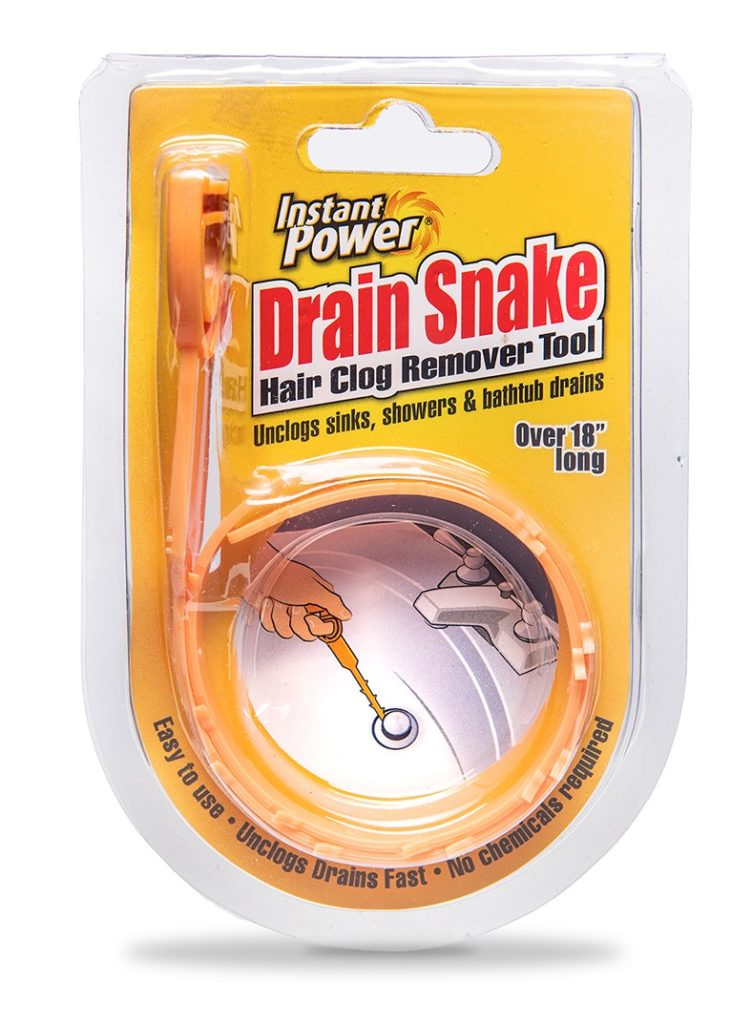




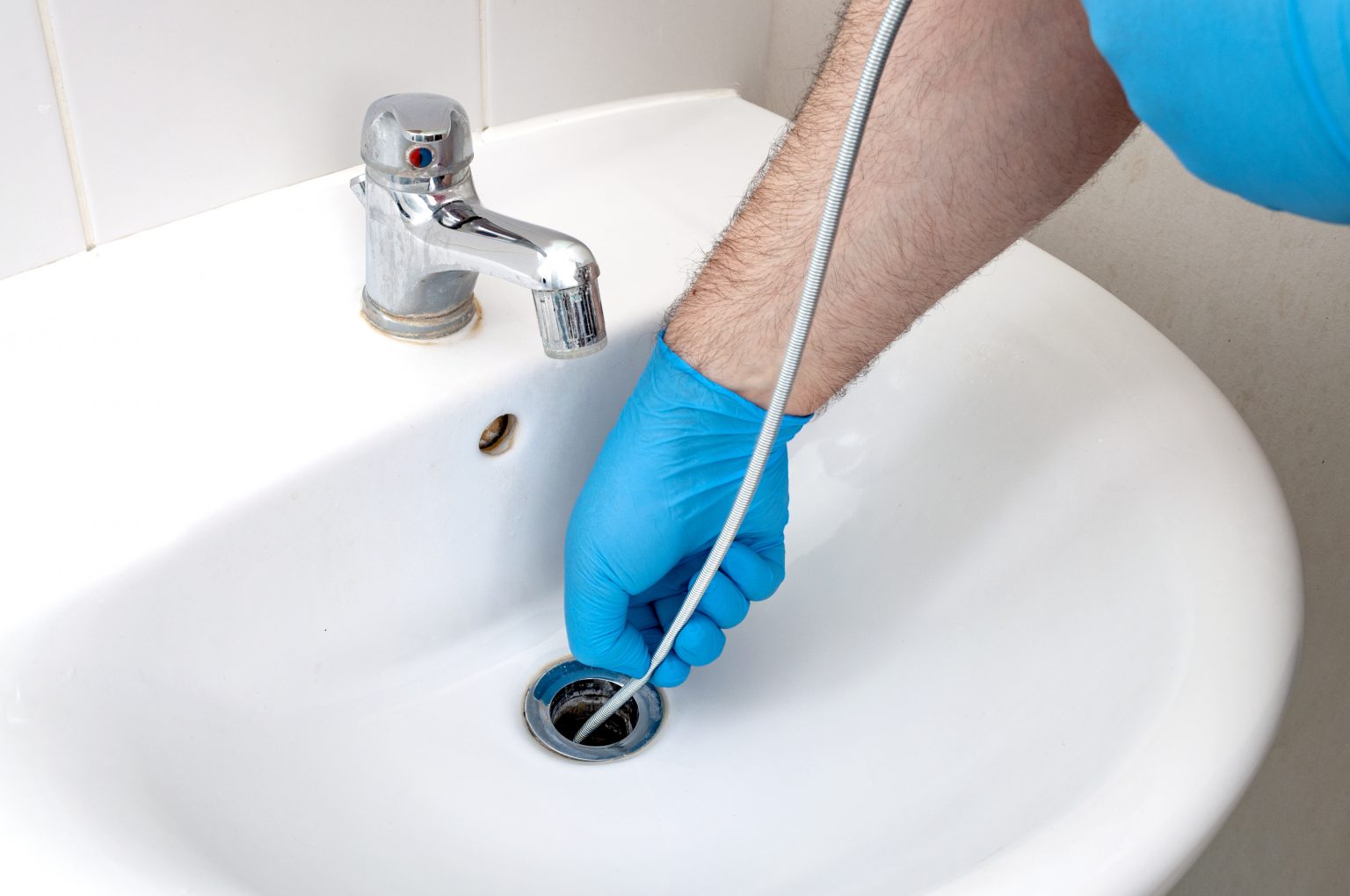




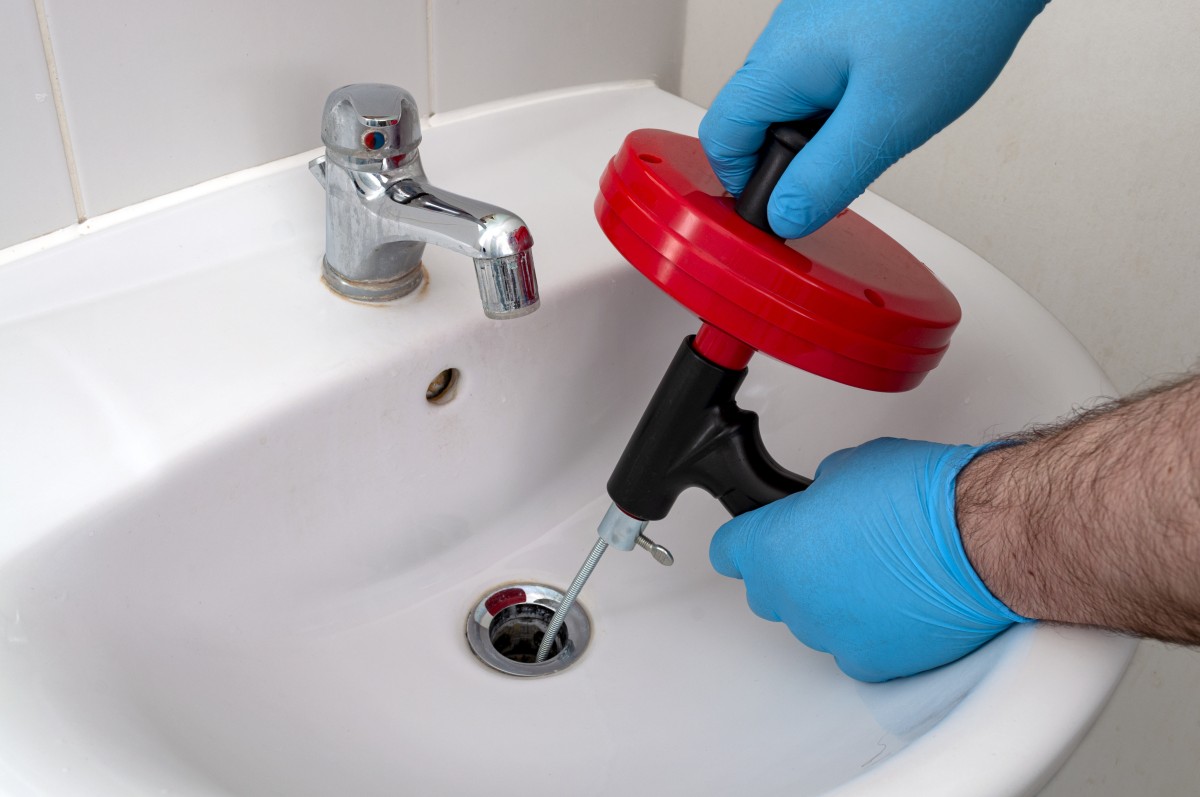

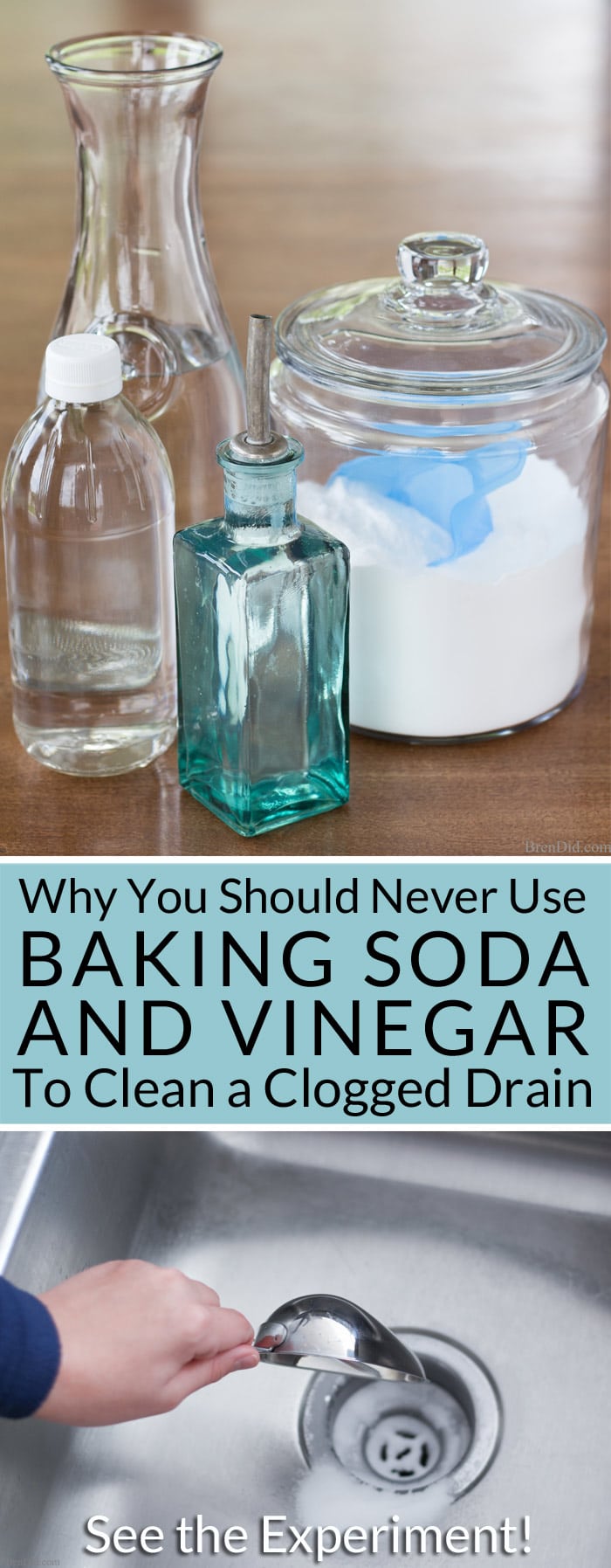

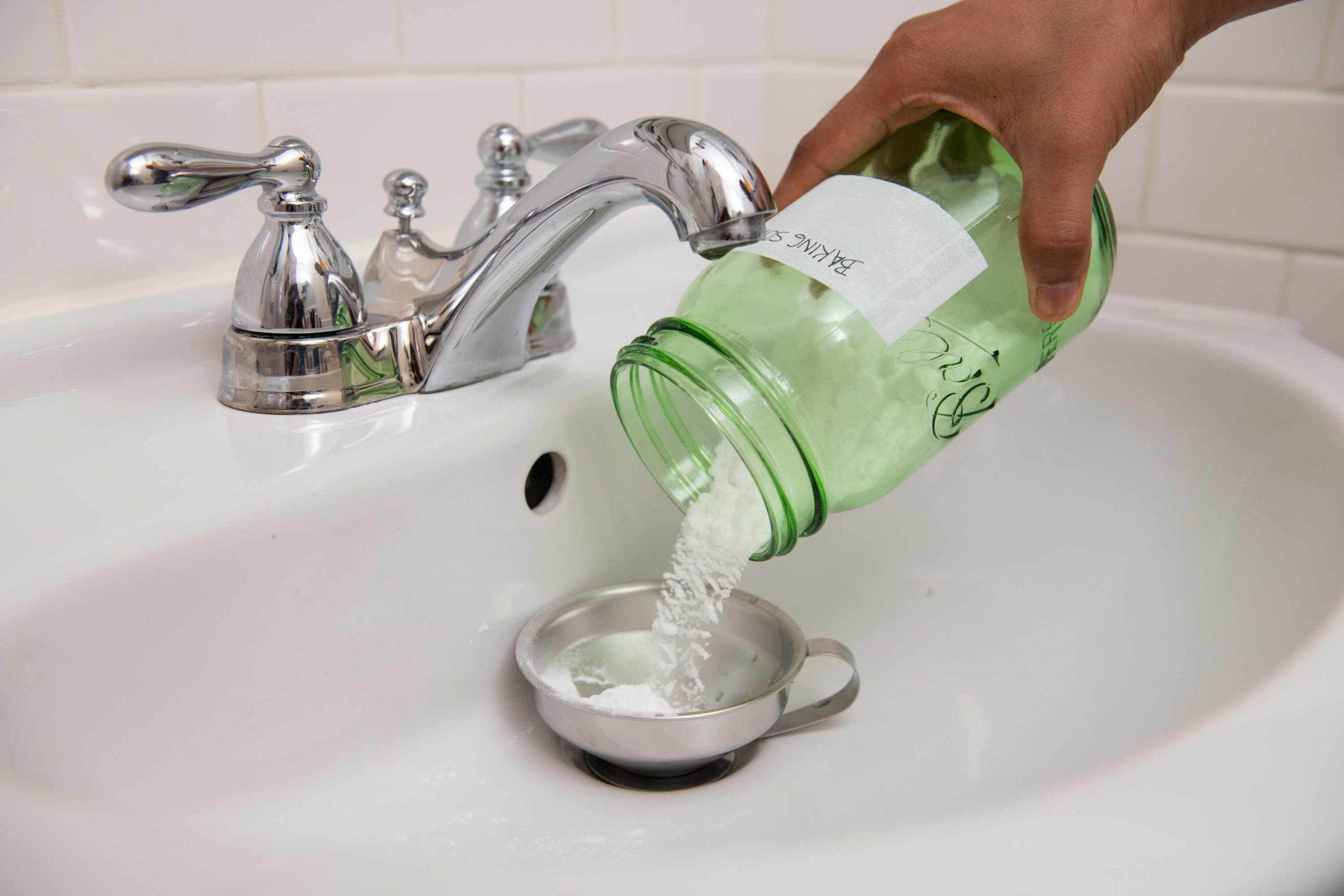

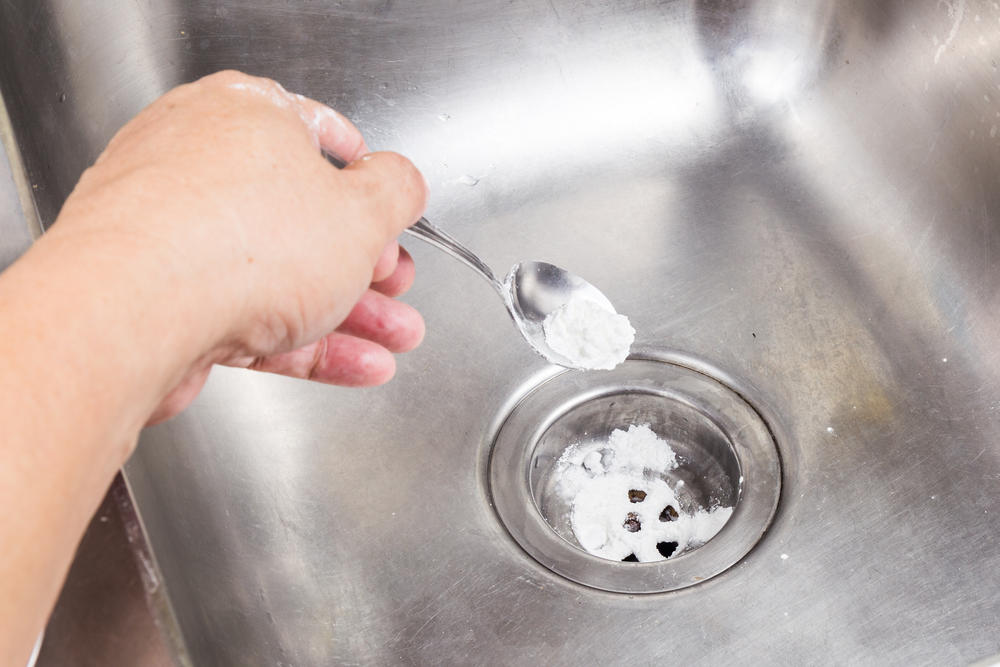

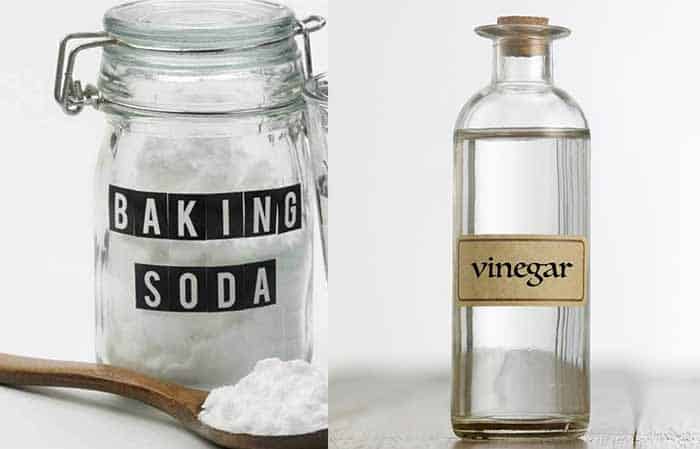

:max_bytes(150000):strip_icc()/freshen-and-unclog-drain-with-baking-soda-1900466-18-1a5b5da01939471ca8f8823865bd1ce8.jpg)






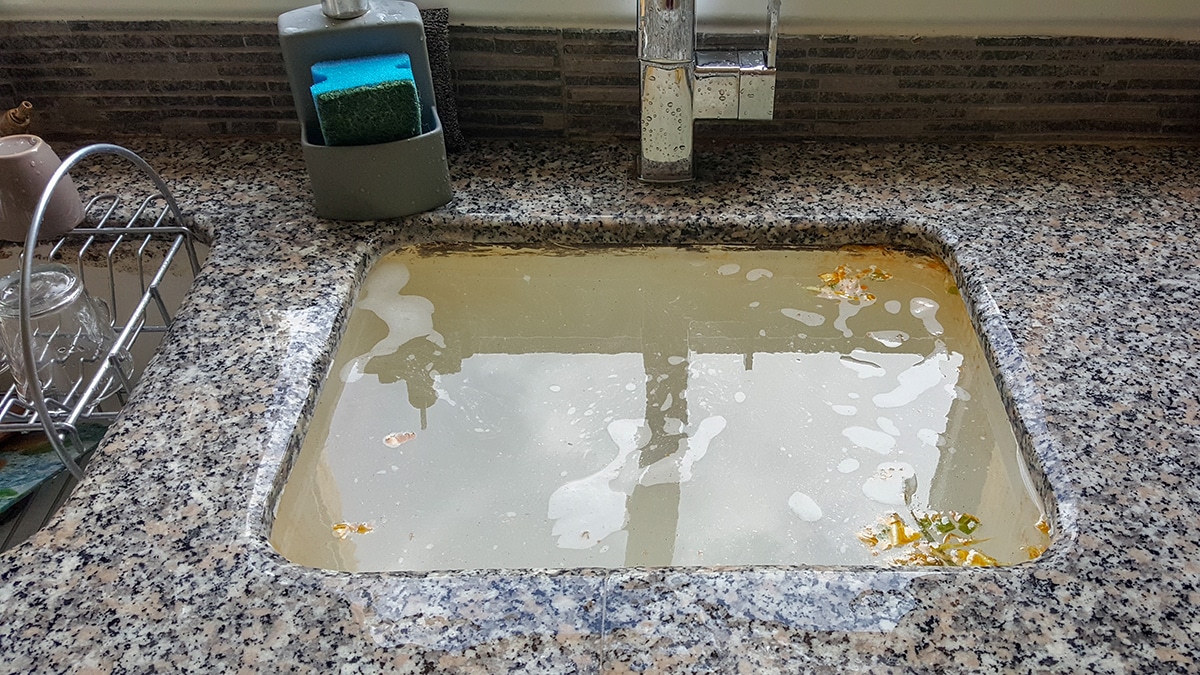






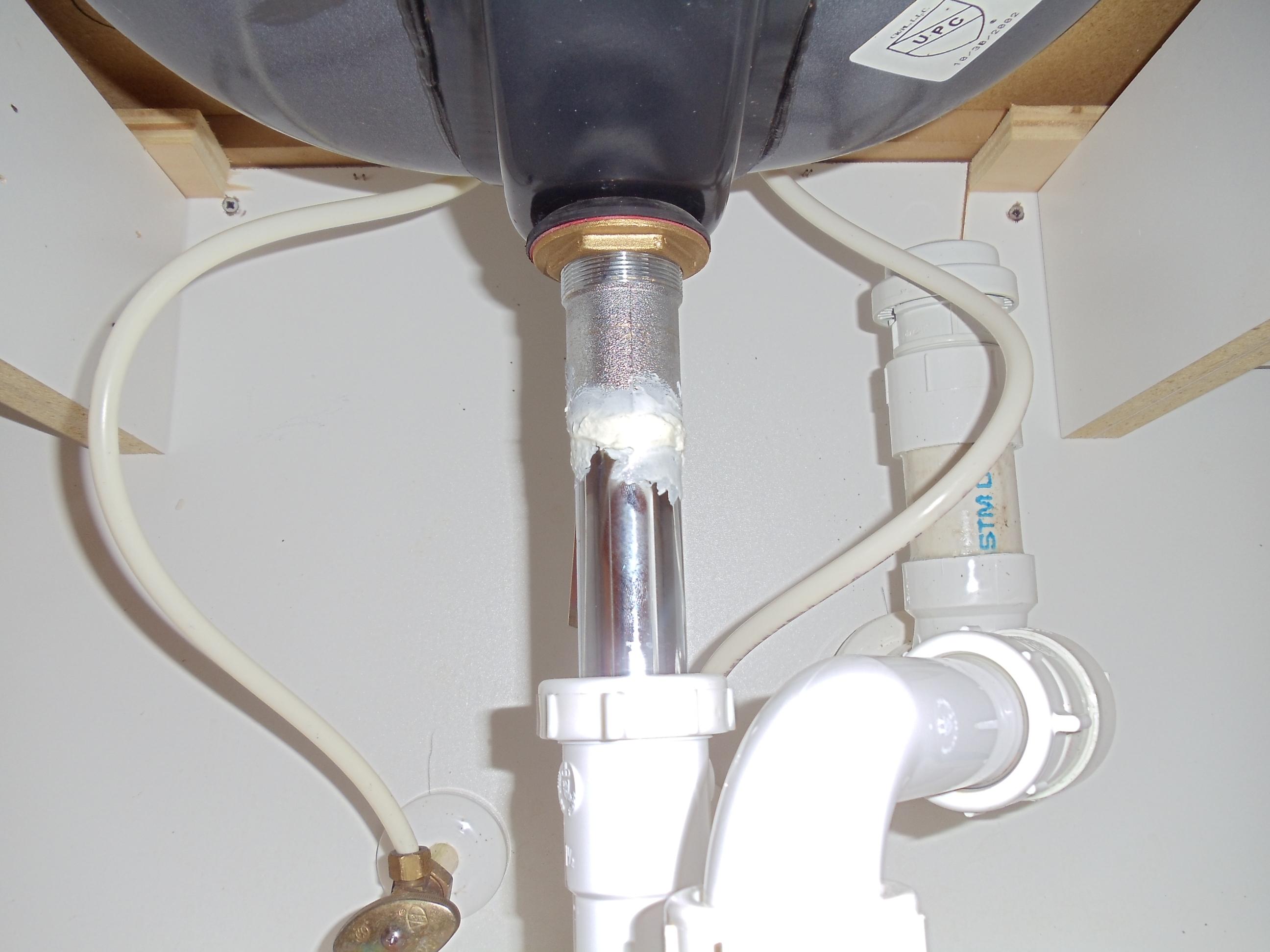

:max_bytes(150000):strip_icc()/how-to-install-a-sink-drain-2718789-hero-24e898006ed94c9593a2a268b57989a3.jpg)



